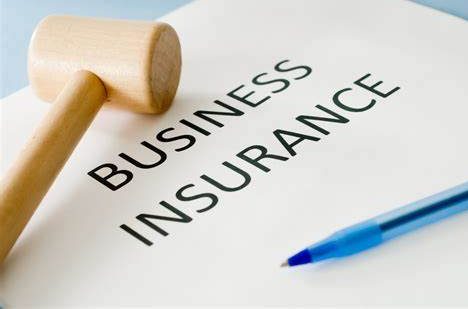Business Insurance for Retailers: A Shopkeeper’s Guide
In the world of retail, unforeseen challenges can pop up at any moment. From customer slip-and-fall accidents to unexpected property damage, running a retail business comes with its fair share of risks. This is where business insurance for retailers becomes an essential safeguard. In this comprehensive guide, we will walk you through the ins and outs of business insurance tailored specifically for shopkeepers.
Running a retail business is a rewarding venture, but it’s not without its share of risks. Whether you own a small boutique or a bustling department store, unexpected events can jeopardize your livelihood. That’s where business insurance comes into play, providing a safety net to protect your investment and ensure peace of mind.
Understanding Business Insurance
Types of Business Insurance
Business insurance encompasses various types of coverage, each designed to address specific risks. As a shopkeeper, you’ll want to consider the following:
General Liability Insurance
General liability insurance is the foundation of any business insurance policy. It covers third-party claims for bodily injury, property damage, and personal injury. If a customer slips and falls in your store, general liability insurance can help cover their medical expenses and potential legal fees.
Property Insurance
Property insurance protects your physical assets, including your store, inventory, and equipment. It can help you recover from fire, theft, vandalism, or other property damage events. Without it, you risk significant financial losses.
Workers’ Compensation
If you have employees, workers’ compensation insurance is mandatory in most states. It provides coverage for medical expenses and lost wages if an employee is injured on the job.
Business Interruption Insurance
Business interruption insurance steps in when your retail operations are disrupted due to a covered event. It can help replace lost income during the downtime and cover ongoing expenses.
Why Retailers Need Insurance
Retail businesses are vulnerable to various risks, making insurance a necessity:
Shoplifting and Theft
Shoplifting can erode your profits, and theft of valuable inventory can cripple your business. Insurance can help you recover the losses caused by theft and burglary.
Customer Injuries
Accidents happen, and if a customer is injured on your premises, you could face a costly lawsuit. Business insurance can shield you from legal and medical expenses.
Property Damage
Natural disasters or accidents like fires can cause extensive damage to your store. Property insurance ensures you can rebuild and restock without draining your finances.
Common Retail Risks
Running a retail business comes with unique risks that every shopkeeper should be aware of.
Shoplifting and Theft
Shoplifting is a common problem for retailers, and it can lead to substantial financial losses. Business insurance can provide coverage to mitigate these losses.
Customer Injuries
Customer injuries can occur due to slips, trips, and falls or other accidents in your store. Without insurance, these incidents can result in expensive legal battles.
Property Damage
Property damage, whether from fire, vandalism, or severe weather, can disrupt your business operations. Having the right insurance can help you recover quickly.
Types of Retailer Insurance
As a shopkeeper, you have access to several types of insurance coverage.
General Liability Insurance
General liability insurance protects against lawsuits stemming from third-party injuries or property damage on your premises.
Property Insurance
Property insurance covers your building, inventory, and equipment in case of damage or loss.
Workers’ Compensation
Workers’ compensation is crucial if you employ staff, as it covers employee injuries and lost wages.
Business Interruption Insurance
Business interruption insurance provides financial support when your business operations are temporarily halted due to a covered event.
Choosing the Right Coverage
Assessing Your Business Needs
Before purchasing insurance, assess your specific needs based on your type of retail business, location, and potential risks.
Working with an Insurance Agent
An experienced insurance agent can help you navigate the complex world of business insurance and find the coverage that best suits your shop.
Cost Factors
Premiums and Deductibles
Your insurance premium is the amount you pay for coverage, while the deductible is the amount you must pay out of pocket before insurance kicks in.
Factors Influencing Premiums
Several factors affect your insurance premiums, including your location, type of retail business, and claims history.
Claims Process
Filing a Claim
If an incident occurs, it’s crucial to understand the claims process and how to file a claim with your insurer.
What to Expect
Knowing what to expect during the claims process can help you navigate it more effectively and minimize disruptions to your business.
Tips for Cost Savings
Risk Mitigation
Taking steps to reduce risks in your store can lead to lower insurance premiums.
Bundling Insurance Policies
Bundling multiple insurance policies with one provider can often lead to cost savings.
Comparing Quotes
Get quotes from multiple insurers to ensure you’re getting the best coverage at the most competitive rates.
Legal Obligations

State Requirements
It’s essential to be aware of your state’s legal requirements for business insurance, as these can vary widely.
Industry Regulations
In addition to state requirements, the retail industry may have specific regulations you need to follow.
Conclusion
Business insurance for retailers is not just a wise investment; it’s a lifeline in times of crisis. By understanding your risks, choosing the right coverage, and taking proactive steps to protect your shop, you can ensure the longevity and success of your retail business. Don’t wait until disaster strikes—secure the insurance coverage you need today.
FAQs :
1. What is the difference between general liability and property insurance?
General liability insurance covers third-party claims for injuries and property damage, while property insurance specifically protects your physical assets.
2. Do I need insurance if I operate an online retail business?
Yes, even online retailers can benefit from insurance coverage, especially if they have physical inventory or interact with customers in any way.
3. Can I change my insurance coverage as my business grows?
Absolutely. You should regularly review and adjust your insurance coverage to match the evolving needs of your business.
4. What happens if I don’t have business insurance and an accident occurs in my store?
Without insurance, you may be personally responsible for covering medical expenses and legal fees, potentially jeopardizing your business and personal assets.
5. Are there any tax benefits to having business insurance?
In some cases, you may be able to deduct insurance premiums as a business expense, which can provide tax benefits.






